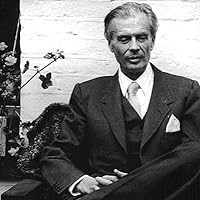Philosophy Of Mind Quotes
Quotes tagged as "philosophy-of-mind"
Showing 61-90 of 117

“There is within the human heart a quality of intelligence which has been known to surpass that attributed to the human mind.”
― Splendid Literarium: A Treasury of Stories, Aphorisms, Poems, and Essays
― Splendid Literarium: A Treasury of Stories, Aphorisms, Poems, and Essays

“The mind leans on [innate] principles every moment, but it does not come so easily to distinguish them and to represent them distinctly and separately, because that demands great attention to its acts, and the majority of people, little accustomed to think, has little of it.”
― New Essays on Human Understanding
― New Essays on Human Understanding

“The mind is not only capable of knowing [innate ideas], but further of finding them in itself; and if it had only the simple capacity to receive knowledge…it would not be the source of necessary truths…”
― New Essays on Human Understanding
― New Essays on Human Understanding

“…if geometry were as much opposed to our passions and present interests as is ethics, we should contest it and violate I but little less, notwithstanding all the demonstrations of Euclid and Archimedes…”
― New Essays on Human Understanding
― New Essays on Human Understanding

“For the [innate] general principles enter into our thoughts, of which they form the soul and the connection. They are as necessary thereto as the muscles and sinews are for walking, although we do not at all think of them.”
― New Essays on Human Understanding
― New Essays on Human Understanding

“Water and a bubble on it are one and the same. The bubble has its birth in the water, floats on it, and is ultimately resolved into it. Likewise, your consciousness is born in your brain, goes through various states in your lifetime and ultimately resolves into the brain.”
― Autobiography of God: Biopsy of A Cognitive Reality
― Autobiography of God: Biopsy of A Cognitive Reality

“Falsity consists in the privation of knowledge, which inadequate, fragmentary, or confused ideas involve.”
― Ethics
― Ethics

“Truth, by all means is the ultimate reward for all the sufferings of the human mind that often compel even the strongest of characters to get down on his or her knees.”
― Love, God & Neurons: Memoir of a scientist who found himself by getting lost
― Love, God & Neurons: Memoir of a scientist who found himself by getting lost
“I do not want to sound cynical or condescending, but your lips are moving, your mind unbending.”
―
―
“Each stage of your life
is like petals of a flower...
unfolding and opening until it comes to full bloom...You will blossom and then you die...But know that this is not your ending.”
―
is like petals of a flower...
unfolding and opening until it comes to full bloom...You will blossom and then you die...But know that this is not your ending.”
―

“Non-Dualism is the future of all Religions.”
― In Search of Divinity: Journey to The Kingdom of Conscience
― In Search of Divinity: Journey to The Kingdom of Conscience
“In most sciences, there are few findings more prized than a counterintuitive result. It shows something surprising and forces us to reconsider our often tacit assumptions. In philosophy of mind, a counterintuitive “result” (e.g., a mind-boggling implication of somebody’s “theory” of perception, memory, consciousness, or whatever) is typically taken as tantamount to a refutation. This affection for one’s current intuitions, sometimes amounting (as we saw in the previous chapter) to a refusal even to consider alternative perspectives, installs deep conservatism in the methods of philosophers. Conservatism can be a good thing, but only if it is acknowledged. By all means, let’s not abandon perfectly good and familiar intuitions without a fight, but let’s recognize that the intuitions that are initially used to frame the issues may not live to settle the issues.”
―
―

“Our entire neurobiology acts as a giant input-output system, that receives information from the outside world, processes that information and makes a person react accordingly.”
― What is Mind?
― What is Mind?

“You are modern humans of the civilized world. And modern humans rise beyond all laws and superstitions of the society. They help their fellow beings to rise from the ashes of ignorance, illusion and fear.”
― In Search of Divinity: Journey to The Kingdom of Conscience
― In Search of Divinity: Journey to The Kingdom of Conscience

“It is much easier to concentrate the mind on external things, than to concentrate on the mind itself. For example, a Neuroscientist can be the smartest man (or woman) on earth in his understanding of the human mind. He may know all the neurochemical changes underlying an outrageous behavior of a person. But when he gets mad himself, very little of his own scientific intellect would actually come in handy for him to control his rage. The virtue of self-control is a skill, which requires practice, regardless of all the neurobiological expertise in the world.”
― In Search of Divinity: Journey to The Kingdom of Conscience
― In Search of Divinity: Journey to The Kingdom of Conscience

“Quantum Mechanics can indeed be extremely complex to grasp, but when we talk about Consciousness, with decades of rigorous studies on the human brain we have realized that actually, there is no other phenomenon in the entire universe that is simpler than the majestic phenomenon of Consciousness.
'If you think you have a solution to the problem of consciousness, you haven’t understood the problem.' This age-old metaphysical and philosophical argument is strictly not true. If you are sufficiently clear-sighted enough, you can realize the problem itself was a matter of the past when we didn’t have insight into the neurological basis of consciousness. And today it is common knowledge in Neuroscience that, all mesmerizing features of the Human Mind, including the glorious Human Consciousness, are born from the tiny specks of jelly inside your head.”
― What is Mind?
'If you think you have a solution to the problem of consciousness, you haven’t understood the problem.' This age-old metaphysical and philosophical argument is strictly not true. If you are sufficiently clear-sighted enough, you can realize the problem itself was a matter of the past when we didn’t have insight into the neurological basis of consciousness. And today it is common knowledge in Neuroscience that, all mesmerizing features of the Human Mind, including the glorious Human Consciousness, are born from the tiny specks of jelly inside your head.”
― What is Mind?

“Any idea of separation is bondage. True liberation of the mind is in non-differentiation.”
― Love, God & Neurons: Memoir of a scientist who found himself by getting lost
― Love, God & Neurons: Memoir of a scientist who found himself by getting lost

“Unlike any other empirical object in Nature, the mind's presence is immediately apparent to itself, but opaque to all external observers.”
― Soul Machine: The Invention of the Modern Mind
― Soul Machine: The Invention of the Modern Mind
“There is nothing so special or boring nor there are any weak or strong things in this world. It is we and our surficial perception that creates these types of environment”
―
―

“The fact that extremely diversified phenomena are explained in terms of laws having the same form or pattern gives us information... about the structure of the various levels of reality with which the mind deals; for presumably the pattern of a hypothesis must have some correspondence, if it works, with the pattern of the phenomena which it explains.”
― Letters of Aldous Huxley;
― Letters of Aldous Huxley;
“Be gentle with others
For many hurt though you see it not
Some wounds are invisible yet deep
KhoiSan Book of Wisdom”
―
For many hurt though you see it not
Some wounds are invisible yet deep
KhoiSan Book of Wisdom”
―

“Scientific understanding of nature, doesn't make a person religious or atheist. It makes a person liberated of all labels. Moreover it makes a person kind and understanding.”
―
―

“It is an utter insult towards the fascinating neurons of your cerebral cortex, to believe anybody’s words blindly, even if that person is a Scientist or a Philosopher. So, I urge to you, that you must exercise your own reasoning and judgment (that’s what your cerebral cortex is for; to be specific the frontal lobes) at all times.”
― In Search of Divinity: Journey to The Kingdom of Conscience
― In Search of Divinity: Journey to The Kingdom of Conscience

“Let love and compassion reign over the modern human civilization and hatred be a matter of ancient history.”
― Love, God & Neurons: Memoir of a scientist who found himself by getting lost
― Love, God & Neurons: Memoir of a scientist who found himself by getting lost

“Misery teaches you the value of joy. It reveals to you the gravitas of human life.”
― Love, God & Neurons: Memoir of a scientist who found himself by getting lost
― Love, God & Neurons: Memoir of a scientist who found himself by getting lost
All Quotes
|
My Quotes
|
Add A Quote
Browse By Tag
- Love Quotes 97.5k
- Life Quotes 76k
- Inspirational Quotes 73k
- Humor Quotes 44k
- Philosophy Quotes 29.5k
- Inspirational Quotes Quotes 27k
- God Quotes 26k
- Truth Quotes 23.5k
- Wisdom Quotes 23.5k
- Romance Quotes 23k
- Poetry Quotes 22k
- Death Quotes 20k
- Happiness Quotes 18.5k
- Life Lessons Quotes 18.5k
- Hope Quotes 18k
- Faith Quotes 18k
- Quotes Quotes 16.5k
- Inspiration Quotes 16.5k
- Spirituality Quotes 15k
- Religion Quotes 15k
- Motivational Quotes 15k
- Writing Quotes 15k
- Relationships Quotes 14.5k
- Life Quotes Quotes 14k
- Love Quotes Quotes 14k
- Success Quotes 13.5k
- Time Quotes 12.5k
- Motivation Quotes 12k
- Science Quotes 11.5k
- Motivational Quotes Quotes 11.5k


